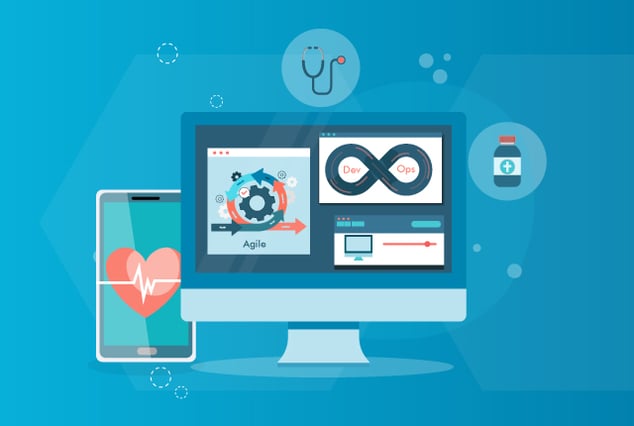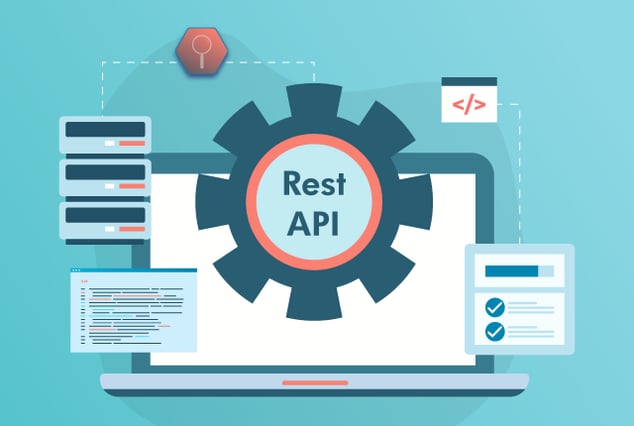 Today, it seems like every app connects and integrates with the next. We can check out via PayPal, login via Facebook, and share content across all of our social media platforms at once. This interconnectedness helps people get more done in less time, leads to rapid growth for relatively young product companies, and creates a supportive ecosystem of well-crafted, well-tested applications. And all of it thanks to the essential bond, the tie that binds: the API (application programming interface).
Today, it seems like every app connects and integrates with the next. We can check out via PayPal, login via Facebook, and share content across all of our social media platforms at once. This interconnectedness helps people get more done in less time, leads to rapid growth for relatively young product companies, and creates a supportive ecosystem of well-crafted, well-tested applications. And all of it thanks to the essential bond, the tie that binds: the API (application programming interface).
Because APIs are so ingrained in how developers code these days, they must be tested thoroughly to ensure proper functionality, reliability, performance, and security. The best way to guarantee that your API integration is good to go live is by teaming up with a qualified, experienced software testing partner with plenty of experience in that area.
When you work with the right partner, you get quality results. Here’s a look at how API testing can benefit your QA process, your team, your product, and the entire software development lifecycle:
Code-based testing helps in short release cycles
Has your team recently adopted Agile testing? Then you’ve been working under short, fast-paced release cycles! Because API testing lets engineers test code directly, they can get a clear idea of the stability and robustness of the application early on. That way, if the GUI changes, there’s no reworking required.
Always reworking apps when the GUI changes? API testing with QA partner can eliminate this. (Click to tweet)
Testing the core functionality of the application also exposes coding errors that may otherwise remain hidden. These can fester and grow into larger problems as GUI testing starts, and it can be costly and time consuming to fix them at this late stage. API testing allows teams to code and test in tandem, fostering collaboration between teams.
API testing takes less time, less money, and less code than GUI testing
In GUI testing, webpage or application elements must be polled, and this can significantly slow down the testing process. This also means that more code is required before GUI testing can begin. Because API testing is solely code-based, you can launch faster tests with less code and still get great test coverage - it’s the best of all worlds.
API testing lets you test the business logic early on, so you can free up time to test newer features, UI, and other areas. Additionally, you can conserve budget by not sinking excess money into GUI tests.
API testing makes automation simpler and faster, and increases confidence
When automating end-to-end test scenarios, it’s easier to expose an API and generate the required test data for automation scripts. In comparison, generating this data from the UI is slow and inefficient, slowing down the overall execution time of functional automation suites. Learn more about the benefits of test automation.
API testing is also viewed as the “green light” for further testing. Because it provides strong confidence about the stability of your product early on, it’s a safe bet that your code is ready for the next stage in the software development life cycle.
It improves collaboration between QA and dev teams
Shared automated API tests can be used by developers to catch code-level problems before QA even sees the code, saving time and clearing up issues before making the hand-off. Additionally, API tests run automatically, so any error that pops up as a result of a change to the source code can be quickly discovered and fixed.
When API testing is implemented, hand-offs between teams are generally smoother, side-by-side collaboration increases, and overall team morale improves.
Why the right partner matters
To see all of these benefits, it’s best if you work with a QA partner who is an expert in API testing, or at least employs a handful of API experts on their team. Trying to roll out a half-baked API strategy is not ideal. It results in lost time, squandered budget, and inefficiencies across the board. Make the right choice for your product, your organization, and your team - pick the right software testing partner today!
Ready to learn more about API testing?
Check out some of our most popular blog posts on the topic now!



